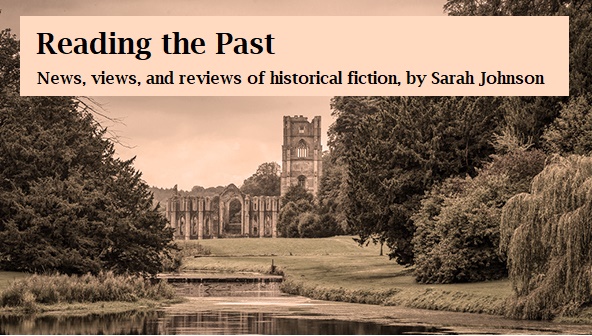Incorporating themes of identity and hope, Lawhon’s novel intertwines two strands: one following Anastasia up to that horrific night in 1918 and another about Anna Anderson, whose unwavering claims to be Anastasia inspired and confounded her contemporaries. Anastasia’s story, evoking her youthful spirit, becomes increasingly tense as her world grows dangerously constrained, while Anna’s story unfolds in snapshots flipping backward in time from 1970.
The suspense hinges on the reader’s unfamiliarity with the real history, and John Boyne’s The House of Special Purpose (2013), also about Anastasia, handles the dual-chronology structure more smoothly. However, Anna’s narrative, involving institutionalizations, glamorous excursions, legal battles, and meetings with people who want to support, exploit, or debunk her, compels with its many contrasts.
Recommended mainly for readers unacquainted with this twentieth-century mystery or anyone interested in Anna Anderson’s troubled life.
This short review first appeared in Booklist's February 1 issue, and the novel (which I read last November as an ARC) was published by Doubleday in March. Some additional notes:
- For my review of The House of Special Purpose, see my post Russian History, a Mystery, and a Reviewer's Dilemma, from 2013. My sentiments remain, and from that you may understand my thoughts about the chronological structure of I Was Anastasia (I'm not revealing anything about the conclusions drawn in either one, though). The structure also resembles that in the film Memento, which the author cites. I haven't seen the movie but may have to now!
- There's a lengthy author's note at the end that says "spoilers abound below" and goes on to explain and reveal various things, as author's notes do. It addresses potential readers, assuming they won't know the real history. I was surprised by this (the revelations about Anastasia were fairly big news when they appeared). Given that, I found it odd that knowledge of Grand Duchess Anastasia's fate was a hindrance to appreciating the book in full.
- I've read other reviews since I submitted mine, and it's been very well received by many readers who hadn't known Anastasia's story beforehand, and some who did. So I'll leave it to you to read it and make up your own mind about it.











I went through an Anastasia phase years ago and read many books that imagined her fate. I just read your comments on Boyne's book and feel that his book likely has a timeless appeal to people interested in the story. Similar to JFK, Lincoln, et al - any high-profile death attracts readers who are fascinated with the details. I'll still read any article about the Romanovs and not that long ago read and enjoyed the YA book by Candace Fleming, "The Family Romanov." Always interesting.
ReplyDeleteI haven't heard of the Candace Fleming book before and will have to check it out. I've read many books about the Romanovs and always look for new novels on the topic, though will probably avoid others that assume readers don't know what really happened to Anastasia.
DeleteWho, of a certain age, didn't cheer on Ingrid Bergman in the 1956 film Anastasia. Belatedly, however, it occurred to me that some of the family were still alive and still wondering about the fate of Tsar's family. Now that the mystery is resolved, I am inclined to avoid books rehashing the crime.
ReplyDeleteI haven't seen the film before, but should. The backdrop to it is depicted in this book, interestingly enough (I enjoyed the chapters about Anna Anderson; her character was intriguing, but not especially likable).
DeleteI'm just going to say it. I have a REEEEEEAAALLL problem with biofiction, especially this trend of authors jumping from one subject to another. Does no one have an original plot anymore? I was hoping that this book wouldn't, um, "re-interpret" history, and it doesn't. I read Anna Anderson's autobiography, as well as the one by another "pretender" (Eugenia Smith) years ago; I also read the books by Peter Kurth and James Blair Lovell which leaned towards recognition and were written before 1991 when skeletons were discovered. Yeah, I was a little obsessed with this at a young age.
ReplyDeleteSarah OL
Some authors specialize in biographical historical novels, though it doesn't bother me unless the topic is overdone. I was also glad that this book didn't reinterpret history (at least not in the case I think you mean!).
Delete